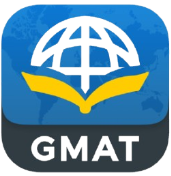Studying in another country helps students connect with the world’s education, different cultures and gain better job opportunities. Even so, many people find it difficult to meet all the criteria for studying abroad because each country, university and study program has its own requirements. This article covers in detail what one has to do to meet requirements to study abroad from India, which countries allow Indian students and what is the procedure for studying abroad. Applying to any country, including the USA, UK, Canada, Australia or others, means knowing these factors will help your criteria for studying abroad and application.
Criteria for Studying Abroad Requirements?
What you must have to study abroad depends on the nation you want to visit, your academic program (such as bachelor’s, master’s or doctoral) and requirements to study abroad. But various universal standards are used in most programs. Read here about the fundamental practices needed:
1. Academic Qualifications
Criteria for studying abroad begin with academic eligibility. Most universities require:
- Undergraduate Programs: A minimum percentage (usually 60-75%) in 12th grade or an equivalent is required for admission to an undergraduate program (by country and university).
- Postgraduate Programs: Besides a bachelor’s degree, most postgraduate programs in Education also look for a minimum GPA (usually 2.5–3.5).
- PhD Programs: In most cases, PhD Programs expect a related master’s degree plus experience doing research as well as published works.
Academic Requirements by Study Level
| Study Level | Minimum Qualification | Typical GPA/Percentage |
| Undergraduate | 12th grade or equivalent | 60-75% or equivalent |
| Postgraduate | Bachelor’s degree | 2.5–3.5/4.0 GPA |
| PhD | Master’s degree + research experience | 3.0–3.7/4.0 GPA |
2. Language Proficiency
Fluency in the language spoken at school is essential to go abroad for education. IELTS, TOEFL and PTE are requirements to study abroad for English-speaking countries. Countries with non-English native languages (such as Germany, France) might call for passing an exam in their mother tongue (for example, TestDaF for German or DELF/DALF for French).
- IELTS: A score of at least 6.0–7.0 is needed for most programs.
- TOEFL normally requires 80–100 points (iBT) for both undergraduate and postgraduate course admission.
- Additional tests: A number of universities will accept PTE Academic (50–65) or Cambridge English in lieu of IELTS.
3. Standardized Tests
A number of countries ask students to show test scores as part of the process for getting accepted abroad. They check a person’s ability and readiness for the demands of academic study.
- USA: In the USA, the undergraduate entrance exam is usually the SAT or ACT and the common graduate entrance exams include the GRE or GMAT.
- UK: Medical course applicants might have to take the BMAT or UKCAT and law applicants the LNAT.
- Australia/Canada: In Australia and Canada, GRE or GMAT is usually used for certain postgraduate courses.
Standardized Test Requirements by Country
| Country | Undergraduate Tests | Postgraduate Tests |
| USA | SAT/ACT | GRE/GMAT |
| UK | None (or BMAT/UKCAT for specific courses) | GRE/GMAT (optional) |
| Canada | SAT (optional) | GRE/GMAT (for some programs) |
| Australia | None | GMAT (for MBA programs) |
4. Financial Requirements
Financial stability needs to be proven for the criteria for studying abroad. Most countries check that you have access to the amount you need for tuition, living inside the country and additional costs. It can be shown by means of:
- Bank statements or loan approval letters.
- Scholarship award letters.
- Sponsor affidavits (if funded by a family member or guardian).
Average Annual Costs (2025 Estimates):
- USA: $30,000–$60,000 (tuition + living expenses).
- UK: £15,000–£30,000.
- Canada: CAD 20,000–CAD 40,000.
- Australia: AUD 25,000–AUD 45,000.
5. Visa and Immigration Requirements
The procedure for studying abroad includes securing a student visa. Visa requirements vary by country but generally include:
- A valid passport.
- University acceptance letter.
- Proof of financial support.
- Health insurance (mandatory in countries like Germany and Australia).
- Visa application fee (e.g., $160 for US F-1 visa, £363 for UK Tier 4 visa).
What is the Procedure for Studying Abroad?
The procedure for studying abroad involves a structured process to ensure a smooth transition from application to enrollment. Here’s a step-by-step guide:
- Research Programs and Universities
At the beginning, study universities and courses that will help you build your academic and work future. To make a shortlist, use QS World University Rankings or Times Higher Education. - Check Eligibility and Requirements
Check what criteria for studying abroad, in your chosen country and program. Meet all the academic, language and financial standards asked for by the university. - Prepare Application Materials
Gather necessary documents, including:- Academic transcripts and certificates.
- Statement of Purpose (SOP) outlining your goals and motivation.
- Letters of Recommendation (LORs) from teachers or employers.
- Resume/CV (for postgraduate programs).
- Standardized test scores (if applicable).
- Apply to Universities
Most admissions take place through applications on the university website or through centralized systems (e.g., UCAS in the UK and Common App in the USA). Check the application deadlines which are usually set 6–12 months ahead of the program. - Secure Funding
Research scholarships, grants and student loans as methods to meet the requirements for studying abroad from India. A number of popular scholarships are:- Fulbright Scholarship (USA).
- Chevening Scholarship (UK).
- Vanier Canada Graduate Scholarships (Canada).
- Australia Awards Scholarship (Australia).
- Apply for a Student Visa
Once admitted, visit the embassy or consulate of the country you are going to for a student visa application. Check that documents are correct so no delays occur. - Plan Travel and Accommodation
Make all the travel reservations, set up your living arrangements (dorm or housing) and register for health insurance. A number of universities provide online sessions before students come.
Criteria for Studying Abroad Country-Wise
What a person needs to meet depends on how education, visa rules and traditions vary in each country. Below you will find the key things you need to meet for criteria for studying abroad country-wise.
1. United States
- Academic: Students must achieve at least 60–70% in high school; 3.0 GPA for postgraduate studies.
- SAT/ACT is taken by undergraduates, GRE/GMAT by postgraduates and TOEFL/IELTS by those whose first language is not English.
- F-1 visa: Must show money to cover study expenses and a commitment to head back home.
- Notice: For undergraduate admissions, the USA weights extracurricular activities and the Statement of Purpose.
2. United Kingdom
- Academic: Students require A-levels/equivalent and postgraduates must have a bachelor’s degree with a 2:1.
- Tests: IELTS (6.5–7.0) or similar, plus BMAT/UKCAT for medicine and dentistry courses.
- Visa: Apply for a Tier 4 (General) student visa.
- Key Note: UK programs are usually completed in 3 years (undergraduate) or 1 year (postgraduate).
3. Canada
- Academic: High school requires 65–75% for undergraduate students and postgraduates should maintain a 3.0 GPA.
- Tests are needed: IELTS (6.5–7.0) or TOEFL and GRE/GMAT for a few programs.
- Visa: Study permit plus proof you have enough money (CAD 10,000–20,000).
- Notes: Canada gives international students the chance to work for up to 3 years after their studies end.
4. Australia
- Academic: Finish with grades of 60–70% or higher or earn a bachelor’s degree with good marks.
- Test scores are required: IELTS (6.0–7.0) or PTE for bachelor and master degree programs; GMAT for MBA programs.
- Visa: Visa type is Subclass 500 for study purposes, with mandatory overseas student health insurance (OSHC).
- Key Note: Australia stands out because admission is flexible and the emphasis is put on trade and technical training.
5. Germany
- Academic: Undergraduates need 13 years of education (12th + 1-year bridging program for Indian students) and those who complete that can earn a recognized bachelor’s degree.
- Tests: TestDaF/Goethe-Zertifikat are taken for German-taught universities; IELTS for English-taught universities.
- Visa: German student visa accompanied by proof that €11,208/year is available in a blocked account.
- Important Point: A number of public universities have free or low-cost tuition programs.
Country-Wise Criteria Summary
| Country | Academic Requirement | Language Test | Visa Type | Unique Feature |
| USA | 60–70% or 3.0 GPA | TOEFL/IELTS | F-1 Visa | Emphasis on extracurriculars |
| UK | A-levels/2:1 honors | IELTS | Tier 4 Visa | Shorter program duration |
| Canada | 65–75% or 3.0 GPA | IELTS/TOEFL | Study Permit | Post-study work opportunities |
| Australia | 60–70% | IELTS/PTE | Subclass 500 Visa | Flexible admission criteria |
| Germany | 13 years education | TestDaF/IELTS | Student Visa | Low or no tuition fees |
Tips for Meeting the Criteria for Studying Abroad
- Plan Ahead: Allow yourself a year or more to prepare because it helps you meet the deadlines and do well in exams.
- Strengthen Your Profile: Try to take part in internships, volunteer opportunities or research to better your CV.
- Seek Guidance: Talk to experienced education counselors or to students who have studied abroad for advice.
- Prepare for Assessments: Join a coaching program for IELTS, TOEFL, GRE or GMAT to get high scores.
- Tailor Your SOP: Mention your special abilities, aims and why you chose a particular country or school.
Conclusion
Knowing the criteria for studying abroad is very important for a successful time in foreign education. Every requirement needs to be prepared for such as educational background, skills in the local tongue, financial security and visas. If you apply correctly and make your procedure for studying abroad suit the guidelines of country-wise criteria, you can access many opportunities for learning and work around the world. Set aside time, keep everything well organized and look for scholarships to make your goals possible.
Criteria for Studying Abroad FAQs
How much must a student get to be eligible for studying abroad?
In order to study abroad for undergraduates, you usually require a high school average of around 60-75% (depending on the country and organization) and for postgraduates, a GPA of 2.5-3.5 (again, criteria depend on the region and university).
o you need to take an IELTS test for entry to another country?
Anyone applying to the UK, Canada or Australia for college studies has to take IELTS. TOEFL and PTE are other tests that might be accepted. Places where English is not a primary language might ask for exams like TestDaF (Germany) or DELF (France).
What is the cost of studying abroad?
The costs are not the same everywhere. Expenses for the USA are usually $30,000–60,000 a year while in Germany, it is about €11,208 yearly. They can relieve part of the financial costs.
Is it possible to study abroad without doing standardized tests?
Most countries still make students take language proficiency tests (e.g., IELTS) no matter what, but some like Australia and the UK may not need SAT/GRE for selected programs.
How much time is needed for the procedure to study abroad?
Research, application processes, dealing with visas and making arrangements before leaving are among the steps and all these together can take 6 to 12 months.





















